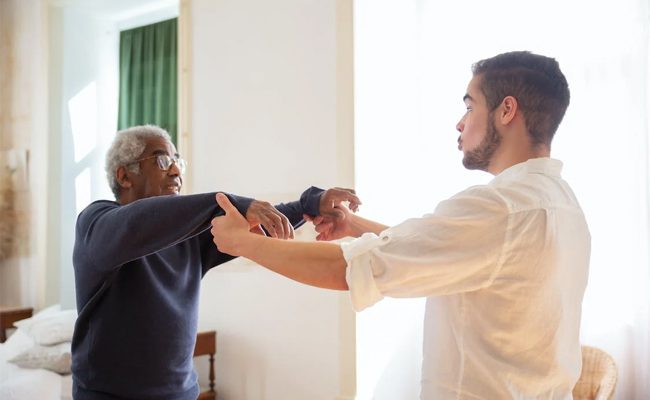
As we age, the need for care and assistance becomes more pressing. For some families, this means considering a transition to elderly homecare. However, preparing for this change can be overwhelming and stressful. From finding the right care provider to ensuring your loved one’s needs are met, there’s much to consider during this time. In this blog, we’ll explore strategies for preparing for a successful elderly homecare transition so that you can ensure your loved one receives the quality care they deserve.
Assessing Your Loved One’s Needs Before Transitioning to Elderly Homecare
Before making the transition to elderly homecare, it’s vital to assess your loved one’s needs. This includes evaluating their physical abilities, medication requirements, and safety concerns in the home environment. It’s also helpful to consider their social and emotional needs to ensure they receive the proper support and companionship. By taking the time to identify your loved one’s unique needs, you can create a personalized care plan that meets their requirements. This can lead to a successful transition and improved quality of life for your loved one.
Preparing Your Home Environment for Elderly Homecare
Preparing Your Home Environment for Elderly Homecare starts with understanding the specific needs of your loved one. This involves cleaning up any clutter and creating unobstructed pathways making it easier for the caregiver to move around. Installing anti-scald devices in showers and faucets and moving light switches to easily accessible locations can also improve safety. It is essential to organize supplies and items that the caregiver may need and to have contact information readily available for the loved one’s doctor, social worker, and emergency medical services. Helping your loved one feel comfortable and in control of their environment is crucial for successfully transitioning to in-home care. Making minor adjustments can make all the difference in creating a safe and supportive environment for your loved one’s care.
Finding the Right Caregiver for Your Loved One’s Needs
After assessing your loved one’s needs and preparing your home for the elderly homecare, the next step is to find the right caregiver. Choosing a caregiver who is a good fit for your loved one’s personality and specific needs is essential. Look for an agency that is transparent and willing to answer your questions. Keeping your loved one involved during the selection process allows them to have a say in their care, resulting in greater satisfaction and comfort. Always include your loved one in decision-making, listen to their needs and preferences, and ask for their feedback. It’s also a good idea to schedule a home assessment with a professional caregiver to identify potential needs and determine the required level of care. With the right caregiver, your loved one will feel supported and comfortable in their home, allowing them to live their best life possible.
Establishing Transportation and Emergency Plans for Elderly Homecare
Establishing transportation and emergency plans for elderly home care is crucial to ensure the safety and well-being of your loved one. It is essential to consider the availability and reliability of transportation for medical appointments, social events, and other activities. In addition, preparing for emergencies is essential. Encourage your loved one to create an emergency plan and go-kit, enroll in local registries and participate in emergency drills. Assign a primary person or multiple people who can be responsible for checking up on your loved one during emergencies. Identifying helpers, such as family members, friends, neighbors, caregivers, and care providers, is also essential. Working with home healthcare experts can help you prepare a comprehensive transportation and emergency plan for your loved one’s needs. By taking these steps, you can ensure your loved one is safe and secure during their transition to elderly home care. So, taking the necessary steps and preparing for any potential emergencies is essential.
What to Do If You Get Locked Out of Your Car During a Senior Care Trip
No one likes getting locked out of their car, but it can be incredibly stressful when you are responsible for a senior loved one during a care trip. If this happens during an elderly homecare transition, remaining calm and taking action is essential. First, check if any other family members or caregivers have a spare key to be brought to the scene. If not, consider contacting a locksmith who is experienced in working with car models like yours. Alternatively, you may need to call for assistance from a roadside service or even emergency services if your loved one’s health is at risk. Whatever the case, communicate with your loved one and keep them informed. Remember, unexpected challenges can arise during any transition, but with resourcefulness and a positive attitude, you can overcome them and ensure a successful elderly home care experience.
Last Words
Thank you for joining us in learning about preparing for a successful elderly homecare transition. Remember, taking the time to plan, communicate, and choose the right caregivers can make all the difference in creating a smooth transition for your loved one. We hope this information will help you navigate this important step in your family’s journey. If you have any further questions or experiences to share, please feel free to leave a comment or reach out to us directly.
Leave a Reply